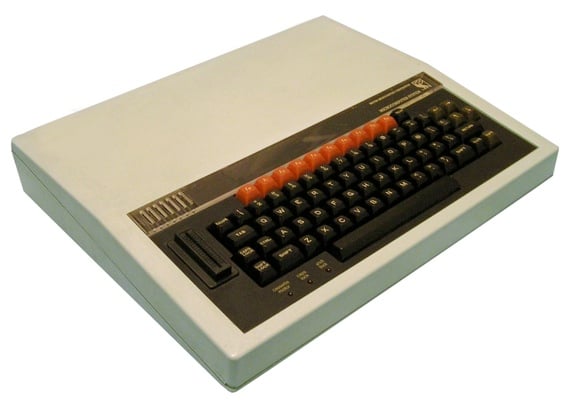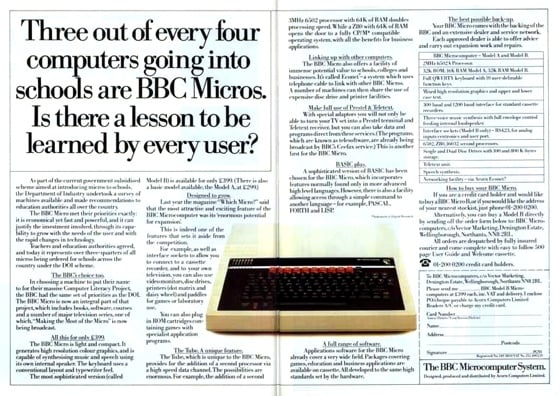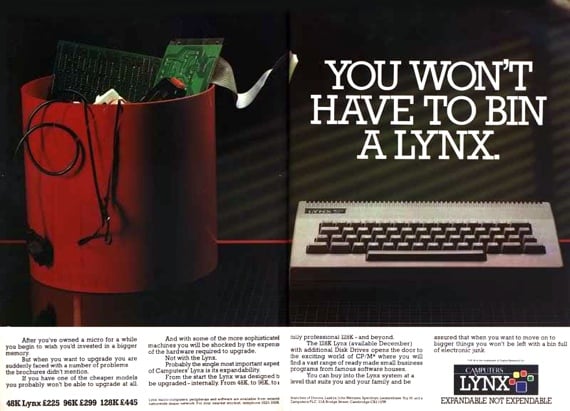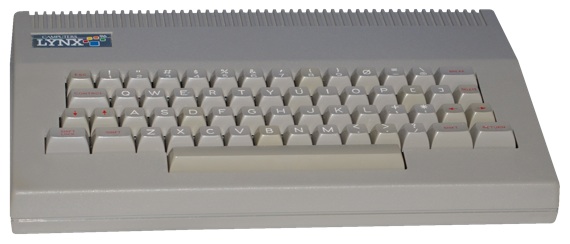This article is more than 1 year old
Twelve... classic 1980s 8-bit micros
6502 and all that
BBC Micro

Designed and built in just a few days, the prototype computer created by Acorn as the follow-up to its Atom would go on to win a key BBC contract to produce a machine to tie in with the Corporation's computer literacy project. Refined, the prototype became the BBC Micro, one of the most powerful, most desired but priciest home micros of the early 80s.

The BBC Micro would become the computer most likely to be found in schools - closely followed by Research Machines' 380Z and 480Z - though it never achieved quite the mass following that arch-rival Sinclair's Spectrum garnered.
But with support for networking, a user-definable IO port, the ability to connect to other CPUs - including an early Risc chip that would become the first ARM part - a Rom chip slot and eight graphics modes, including Teletext, it was tech'd up to the hilt.
Check out our full history of the BBC Micro here.

Price £299 (Model A) £399 (Model B)
CPU 6502 @ 2MHz
Memory 16KB (Model A) 32KB (Model B)
Developers Acorn's Chris Turner, Steve Furber, Sophie Wilson, Nick Toop; Cambridge University's Ramanuj Banerjee
Camputers Lynx

One of the less well-remembered early 1980s UK home computers, not least because fewer than 30,000 were sold. Designed by John Shireff, the Lynx was launched in 1983 with 48KB of memory, a 4MHz Z80A processor. Models with 96KB and 128KB - and slightly faster CPUs - were launched too, as was a 5.25in floppy drive. All of them ran exclusively in a 256 x 252, eight colour graphics mode at a time when most other machines booted into a low-res text mode, reserving hi-res graphics for games.
Yet games were the Lynx's problem: it barely had any. The maching was pricey too, and so punters opted for better-marketed, cheaper alternatives. In such a cut-throat market, Camputers proved unable to survive and collapsed 18 months after the Lynx's launch. The machine was acquired by Aniston Technology six months later, but a mooted re-launch never took place.

Price £225 (48KB model) £299 (96KB model)
CPU Z80A @ 4MHz (48KB model) Z80A @ 6MHz (96KB Model)
Memory 48, 96 or 128KB
Developer Camputers' John Shireff

